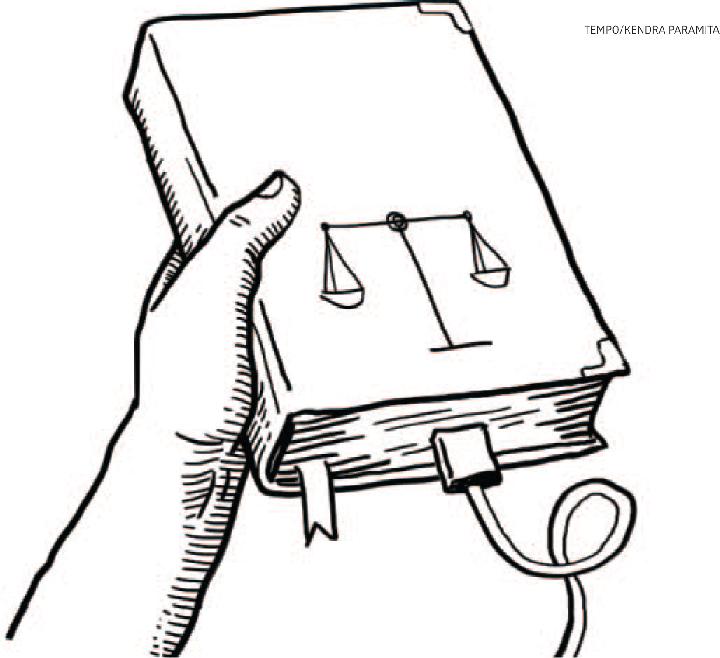
TEMPO.CO, Jakarta - WE must be on the alert over the secretive stance of the government in its plan to replace dozens of laws with omnibus laws. The secretive way these clean sweep laws are being drawn up not only ignores the aspirations of the people, but also means there is a risk that the law will only be in the interests of political or economic oligarchies.
President Joko Widodo’s proposal to quickly replace a number of laws that are mutually contradictory is understandable. Indonesia has long been accused of suffering from “hyper-regulation”. According to the Indonesian Center for the Study of Law and Policy, in the first period of Jokowi’s administration alone more than 10,000 regulations were issued. Among these were 131 laws, 526 government regulations and 839 presidential regulations. Among all of these regulations, more than a few are at odds with each other.
These mutually contradictory laws not only produce legal uncertainty, but also slow down public services. Endeavors to revise these problematic regulations one by one clearly would take a long time. Therefore, the way of revising them all at once through omnibus laws may well be a solution.
The problem is with the process of deliberation. The public has been given no information at all about the content of the academic documents and the bills being prepared. All that has reached our ears are a few snatches of information that are rather concerning.
The job creation bill – one of these omnibus laws – which it is hoped will become a solution to the slowdown in investment, is one example. There is considerable confusion about the changes that are being made. One prominent concern is the government’s plan to relax a number of regulations that are seen as making it difficult for companies to dismiss employees. If deliberation of this matter continues without involving trade unions, the regulation is bound to trigger widespread demonstrations.
There are also reports of the government’s plan to loosen the requirements for building permits (IMB) and environmental impact analyses (Amdal) for projects in order to make things easier for investors. This could also turn into a boomerang. The IMB and Amdal requirements are a “safety net” to stop projects damaging the environment. If these provisions are relaxed, ecosystems around projects could suffer.
Moreover, there are reports that the omnibus laws bill will also roll out the red carpet for corporations holding mining permits. Areas of mining concessions will no longer be limited to 25,000 hectares as at present, and the extension of expired mining contracts could go ahead immediately without a tender process.
These rumors have arisen because the deliberations of these regulations are taking place behind closed doors. Do not blame the public if people start to suspect that these clean sweep laws will be full of clauses inserted at the wishes of tycoons and owners of large businesses.
The discussion of the omnibus laws bill involving many sectors should take place in the open. Transparency is important to stop the omnibus laws becoming flawed legal products or causing problems in the long term. The more people that study the bill, the better. The government should not limit consultations to a select group, yet alone one dominated by businessmen.
The government and the House of Representatives (DPR) must learn from their mistake when they tried to pass a number of revisions to laws at the end of last year. The rushed and secretive deliberation process triggered demonstrations across the country. The executive and legislative paid a heavy price for their arrogance in the form of deaths of demonstrators and an erosion of public trust.
Read the Complete Story in this Week's Edition of Tempo English Magazine























